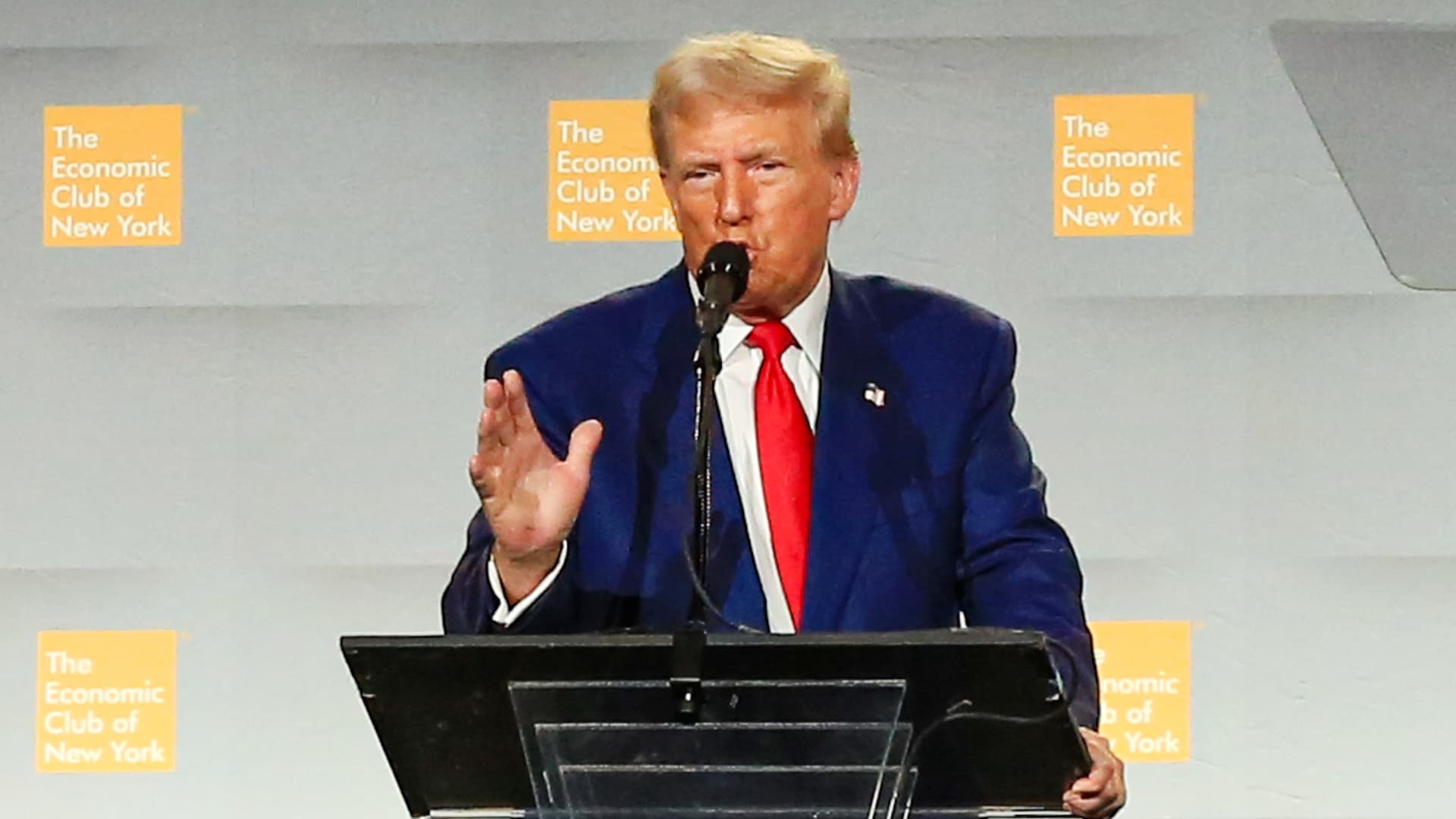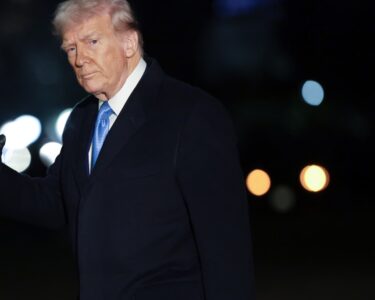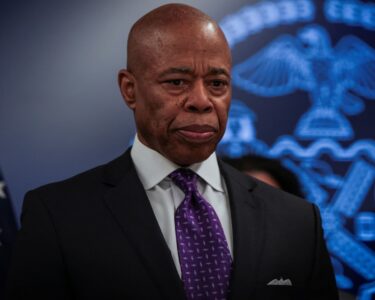NEW YORK — Former President Donald Trump on Thursday unveiled a new batch of economic policy proposals that include Tesla CEO Elon Musk’s idea of creating a government efficiency commission to eliminate wasteful federal spending, a shot at the Biden-Harris administration’s spending levels.
“This commission will develop an action plan to totally eliminate fraud and improper payments within six months,” Trump said in a speech to a room full of business executives at the Economic Club of New York.
He added that Musk could be a “good one” to lead the commission “if he has the time.”
Trump’s embrace of Musk’s idea is the latest signal of their warming alliance, a stark pivot from just two years ago when the two were engaged in a public feud, openly exchanging insults with each other.
“When Elon started the conversation with the president, I think the president was very excited that somebody like Elon Musk is so dedicated to America’s future that he would be willing to be a part of something to help the government work more efficiently,” Trump campaign advisor Brian Hughes said on a call with reporters ahead of the former president’s speech.
Hughes added that details on how the efficiency commission would be staffed and operated are yet to come.
But Musk has repeatedly raised his hand to helm such a commission: “I look forward to serving America if the opportunity arises. No pay, no title, no recognition is needed,” the billionaire entrepreneur reiterated in a Thursday post on X.
The government efficiency commission plan also gives Trump a concrete proposal to attach to his attacks on what he sees as frivolous spending in the Biden-Harris administration.
“It’s time to send Comrade Kamala Harris back home to California,” Trump said during his speech Thursday. “She wants four more years to enforce the radical left agenda that poses a fundamental threat to the prosperity of every American family and America itself. We’re talking about America itself.”
So far, Trump’s economic proposals come with their own set of hefty price tags.
During the Thursday speech, Trump doubled down on potentially expensive proposals such as lowering the corporate tax rate to 15% from its current 21% level, deepening his first-term tax cut, which reduced the rate from 35%. He also reinforced his commitment to eliminating taxes on tips and Social Security benefits.
A recent study by the Penn Wharton Budget Model estimated that Trump’s proposals could spike federal deficits by almost five times more than those that Harris has so far unveiled. It is an open question whether the savings from the Musk-inspired government efficiency commission would be canceled out by those fiscal deficit increases.
The Trump campaign did not immediately respond to CNBC’s request for comment on that question.
The former president pledged to repeal certain pockets of funding from President Joe Biden’s Inflation Reduction Act. “I am promising low taxes, low regulations, low energy costs,” he said.
Trump also lauded some of his own first-term policy decisions, including imposing a hardline tariff policy against China and cutting the corporate tax rate to 21%.
“I took care of our economy [as] I would take care of my own company,” Trump said.
The Thursday speech comes as Trump works to sharpen his policy pitch five days before he is scheduled to face off against Harris in a debate hosted by ABC News on Sept. 10.
Some of Trump’s economic proposals, such as his plan to impose across-the-board tariffs on all imports, have faced backlash from economists and Wall Street analysts.
Goldman Sachs, for example, said in an analyst note Tuesday that Trump’s proposals could threaten to dent GDP growth. They also said a hypothetical Harris administration could be better for the U.S. economy. The Trump campaign flatly rejected that notion Thursday.
“They push this type of material into the political environment and then aren’t held accountable or responsible for how off it was,” Trump campaign advisor Hughes said of Goldman Sachs.
The multinational investment bank’s assessment of the competing economic plans was part of a proprietary research document that was created for Goldman Sachs’ clients, not for the general public.
— CNBC’s Josephine Rozzelle contributed to this report.






